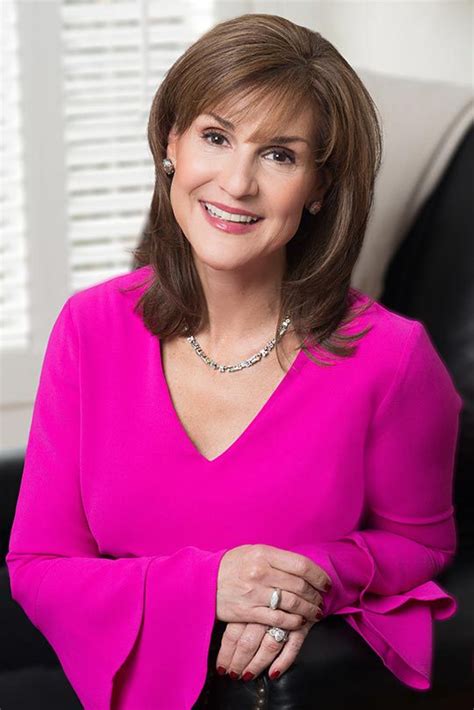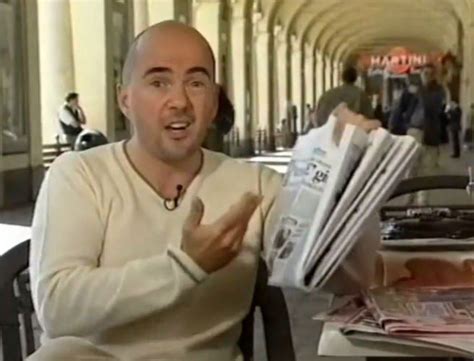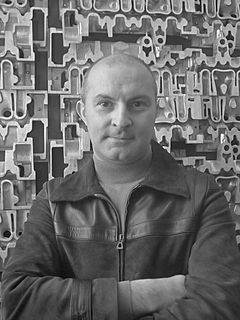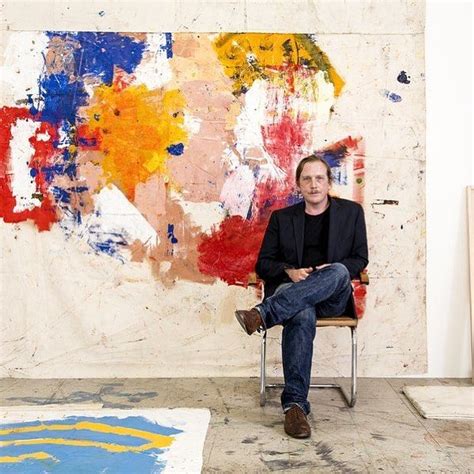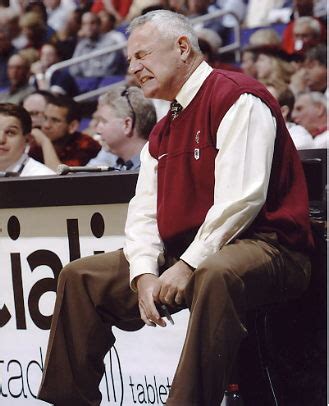A Quote by Viggo Mortensen
We all experience many freakish and unexpected events - you have to be open to suffering a little. The philosopher Schopenhauer talked about how out of the randomness, there is an apparent intention in the fate of an individual that can be glimpsed later on. When you are an old guy, you can look back, and maybe this rambling life has some through-line. Others can see it better sometimes. But when you glimpse it yourself, you see it more clearly than anyone.
Related Quotes
Sometimes we make decisions because it seems to be the only path visible at the moment. It's only later that we see there was more than one path, but the others were blocked from our vision at the time. That's the thing with hindsight, you see. Even if you can see it clearly, there's no going back. It's at that point we need to turn around and stare ahead and make a new life.
The poor, you know, have a way of solving problems...they have a tremendous capacity for suffering. And so when you build a vehicle to get something done, as we've done here in the strike and the boycott, then they continue to suffer - and maybe a little bit more - but the suffering becomes less important because they see a chance of progress; sometimes progress itself. They've been suffering all their live.s It's a question of suffering with some kind of hope now. That's better than suffering with no hope at all.
Charisma seems to be more about the intoxicating quality that you have on other people, as opposed to presence, which is more about the self in relation to others, and how you feel you represented yourself in a situation, and how you were able to engage. So it's less about how others see you and more about how you see yourself.
I've always thought of characters like advent calendars. You have Christmas and you have all the little doors over the windows and every day you're allowed to open one more as it gets towards Christmas and you see more and more about what's inside that house.I remember as a kid being fascinated by that and I've always thought of my character as a little bit like that. I like to have secrets and slowly let those secrets out to the audience, sometimes never let them out, but let them see as you open the shutters, open and see a little bit more of a character.
If I brought you down to the size of an individual cell so that you could see your body from that perspective, it would offer a whole new view of the world. When you looked back at yourself from that perspective you would not see yourself as a single entity. You would see yourself as a bustling community of more than 50 trillion individual cells.
Free yourself from all believes, all norms. See that you live completely with beliefs. Free yourself from second hand information. See in you clearly what is beautiful. All that is beautiful in you is right. Look at the situation with an open mind, free from hearsay. The solution is in the situation. So, see the situation clearly with an open mind. Then the choiceless decision comes.
Many Westerners see follow-through and reliability as the most critical factor in how they calculate the trustworthiness of another individual. In some other cultures, who you know and how you're related to other individuals is the most important variable. And for others, it may be as much about your reputation and what others have said about you.
Through the history of art we can see through the emotional life, and sometimes the financial security of some of the artists, some transformation. And I really believe that it's generally about the same kind of transformation and the same kind of reaction. We are a little bit less individual than we would like to believe or guess we are.
I don't see people. I don't see men and women at all. When I see them, I see... their mothers and fathers. I see how old they are inside. Like when I look at the president, or anybody in a record company, or a store owner, I may see a little boy behind the counter with the face of an old man. And that's who I talk to.
I concluded some time ago that a major part of success of a team, or of an individual, has a great deal to do with the intangible qualities possessed. The real key is in how a person see himself (humility), how he feels about what he does (passion), how he works with others (unity), how he makes others better (servanthood), and how he deals with frustration and success, truly learning from each situations (thankfulness). I believe those concepts are the essence of a good player, team, coach, or individual in any capacity in life.
I think the more you have a generalist perspective, I think sometimes the more you can kind of see through the forest and the trees. And when it gets a little bit cloudy, you know, have some sense of, "Well, maybe this might happen or maybe that might happen." So I really am a big believer in liberal arts education. I think it's better - particularly in these kind of uncertain times - to know a little bit about a lot of things as opposed to being expert in one thing.

